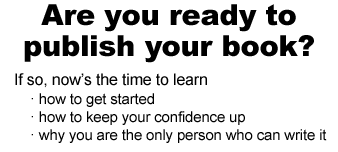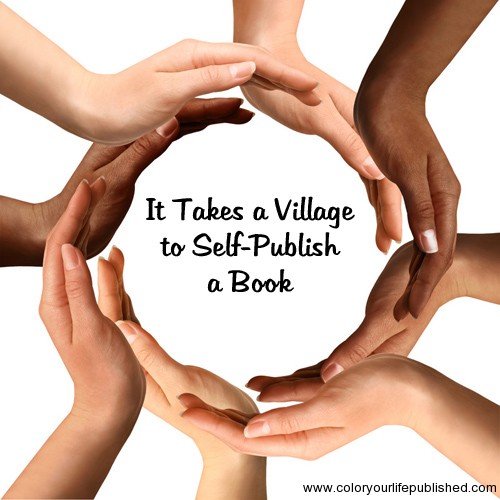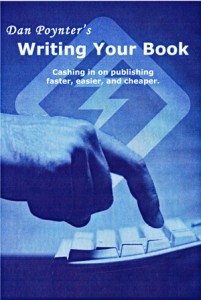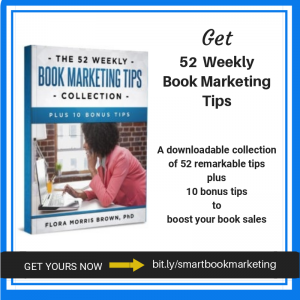 (This is the second in a series. Check out Part 1 here.)
(This is the second in a series. Check out Part 1 here.)
So, let me guess.
You’re reading this because you want to write your book, but you are paralyzed with the fear that you’ll screw it up.
As one radio psychologist often said to her callers, “Somebody has to tell you and it might as well be me.”
YOU WILL SCREW UP YOUR BOOK.
. . . the first draft of your book, that is.
Come on. Do you really think Stephen King rolls out a compelling novel from beginning to end in one fell swoop? Every word in place, every scene painted in vivid colors?
Grow up! Of course not.
To conquer your fear of screwing up the book you want to write, you must be willing to do the exact thing you fear: screw up.
As soon as you’re willing to be imperfect and turn out the inevitable first shitty draft, you’ll be on your way.
It’s not your fault that you’re stuck by this “perfection affliction.” If you’re like most of us, you were raised by well-meaning adults who prodded you to ponder, plan and hesitate to take action until everything was in place.
This strategy may have a good use in some cases, but when it comes to writing your book it’s not only a detriment, it’s a dream killer.
In the first part of this series I urged you to conquer your fear of screwing up your book by forgetting about being original. Now I’m asking you to do something else.
Give up on perfection
1. Be willing to write consistently without any expectation that it’ll be great.
Published writers who make a living from their work create a schedule and stick to it. Some have a daily word count goal, others have a time goal. Whatever the case, they turn out the writing knowing that it’s not in finished form.
Like a furniture maker who starts knows that there will be much cutting, assembling and glueing before the finishing stage, so must you see your book as a project that will be rough first and refined and polished later.
2. Be willing to look foolish and fail in front of the world.
Olympic athletes don’t set out to fail. They spend years of physical and mental preparation, training for that one day. On competition day, they get one jump, one dive, or one toss on a worldwide stage where they emerge victorious or fall short of winning the coveted awards or breaking a record.
To live a creative life we must first lose the fear of being wrong. ~ Joseph Chilton Pearce
Even after your book is finished and polished to its best, you will receive mixed reviews of it.
- Chicken Soup for the Soul was rejected over 130 times as Mark Victor Hansen and Jack Canfield were cautioned that a self-help book like theirs couldn’t sell.
- Stephen King’s high school teacher admonished him for wasting his talent on the horror genre.
- Seth Godin, author and marketing guru, recently shared that a high school teacher wrote in his yearbook that he would never amount to anything.
3. Embrace your imperfection
Fred Astaire, regarded as the greatest musical dancer of all time, received the following comment from a studio executive after a screen test early in this career: “Can’t sing. Can’t act. Slightly balding. Can dance a little.”
Although Astaire was known for relentless practice in an effort to perfect his performances, when asked about his style he said if you make the same mistake enough times it becomes your style.
Perfection is a mind set that masks insecurity and blinds you to the wonder and awe that emerges from the early efforts at writing your book. If you insist that your prose be perfect right out the gate, you set the bar so high that you rob yourself of the necessary steps that strengthen your writing skills.
Striving for perfection is very different from insisting on it. When you embrace your imperfection, you accept your humanness.
When Alexander Pope wrote “To err is human; to forgive, divine” he was urging us to forgive others. I ask you to also forgive yourself for your imperfections.
Draw comfort from the fact that the biggest part of writing a book is the rewriting. When you, your editor, copyeditor and proofreader all take their turns at massaging your manuscript, your finished book will be superior to its rough draft, but never perfect.
Take comfort from Ernest Hemingway’s words
“We are all apprentices in a craft where no one ever becomes a master.”
Have you been blocked by the quest for perfection? How did you get past it?
If you’re ready to conquer your fear of screwing up the book you want to write, let me be your companion on your writing journey. Tackle the biggest hurdle to writing your book: getting started.
Start now while it’s on your mind with my e-course, Rockin’ My Book. In this affordable 4-week course you receive in your emailbox one lesson per week for four weeks with instructions, homework and encouragement. Feel the joy of being a published author. Enroll in this on-demand course.
The course starts as soon as you register.















———————————
If you are ready, I’d love to be your travelling companion to make your writing journey a fun trip with a soft landing. Once you’ve completed your manuscript, you can convert it to many profitable formats. Begin with the 7-Step Roadmap to Publishing Success at http://www.abookin90days.com